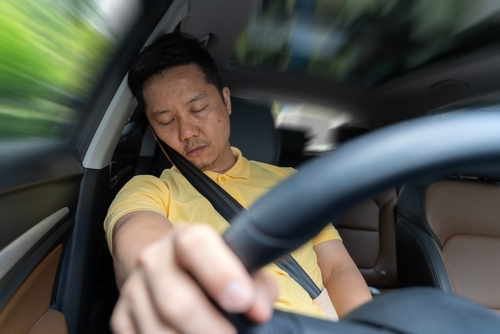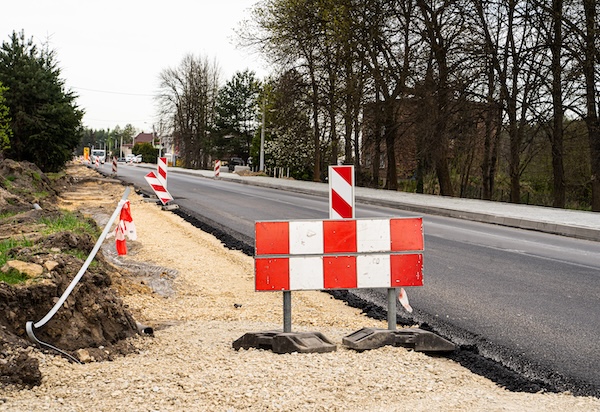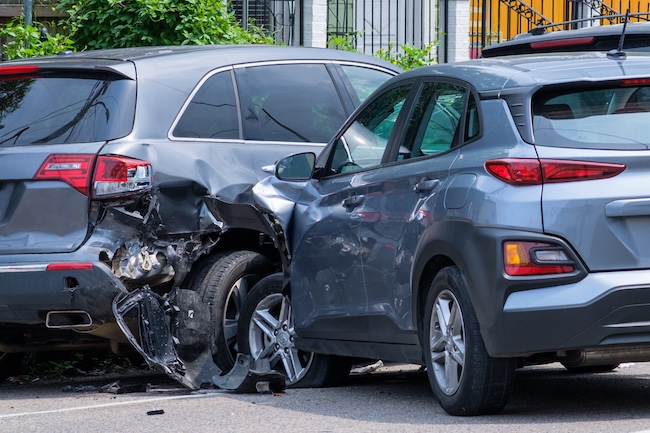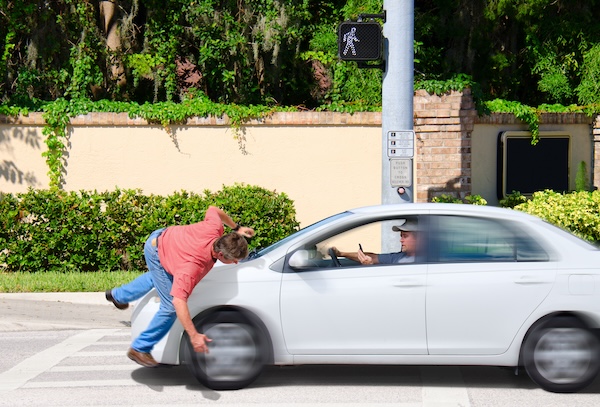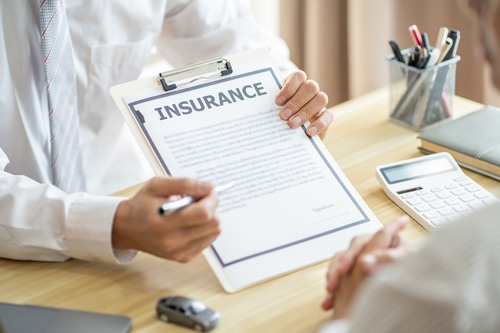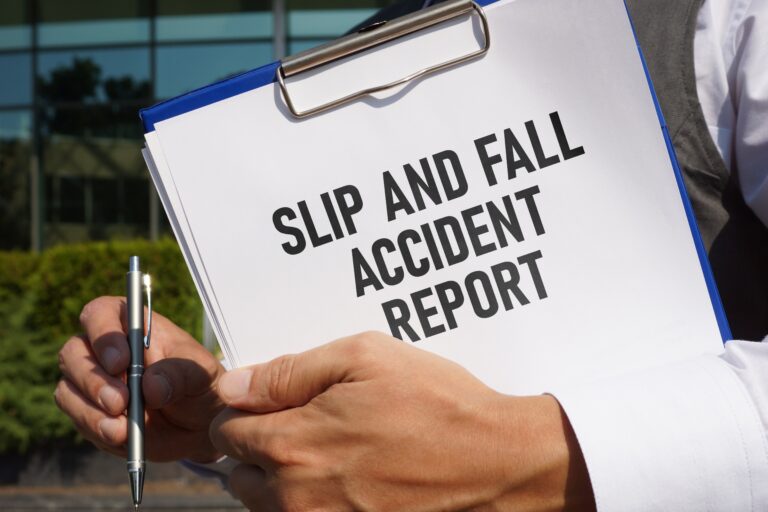Construction zones are common across Georgia as road repairs and infrastructure projects increase. These areas create unique risks for drivers, including narrowed lanes, shifting traffic patterns, reduced speed limits, and unexpected obstacles like construction equipment or debris. A construction zone accident can lead to serious injuries, lost wages, and high medical bills. Understanding what to do after a crash and who may be held liable is key to protecting your rights.
In this blog, you will learn what steps to take after a construction zone accident, who may be held liable, what types of compensation you can pursue, and how working with an experienced Tucker car accident attorney can help you protect your rights and build a strong personal injury claim.
Immediate Steps to Take After a Construction Zone Accident
After a construction zone accident, quick and clear action can protect your safety, strengthen your injury claim, and help identify who may be held liable.
Ensure Safety First
Move your vehicle to a safe location if traffic conditions allow. Stay clear of construction equipment, falling objects, or active work zones. Use hazard lights to warn other drivers. If you or your passengers are injured, remain in place and wait for emergency responders. Work zones present unique risks such as heavy machinery, uneven road conditions, and poor visibility, making it important to stay alert and cautious.
Call 911 and Report the Crash
Contact emergency services immediately. Inform the dispatcher that the crash happened in a construction zone. First responders will help with medical care and file an official accident report. This report will serve as important evidence for your personal injury case and can help determine legal liability. If construction workers or other road users witnessed the crash, tell the officers on the scene.
Seek Immediate Medical Attention
Some injuries from construction zone accidents may not be visible right away. Internal injuries, broken bones, and concussions are common in rear end collisions and high-impact crashes. Get checked by a medical professional even if you feel fine. Medical records can connect your injuries directly to the accident, which helps support your claim for compensation.
Document the Scene
Take clear photos of the vehicles, construction activities, warning signs, road conditions, and any construction debris. Include images of skid marks, damaged equipment, or missing signage. Get contact details from other motorists, construction crew members, and any witnesses. Ask for the name of the construction company if available. This evidence can help identify negligent parties and show how the accident occurred.
Avoid Admitting Fault
Do not admit fault at the scene, even if you think you made a mistake. Construction sites involve multiple parties, including drivers, contractors, and government agencies. Legal liability often depends on several factors, such as improper signage, speeding, or equipment left in traffic lanes. Let your car accident attorney handle communication with the insurance company and other parties involved.
Who Can Be Held Liable in a Construction Zone Accident in Georgia?
Liability in a construction zone accident often involves multiple parties and depends on the specific circumstances of how and where the crash happened.
Drivers
Drivers who speed, ignore warning signs, or fail to adjust to reduced speed limits in construction zones can be held liable. Distracted driving and aggressive lane changes are leading causes of accidents in work zones. A driver’s failure to follow traffic patterns or yield to construction workers may show negligence. Georgia law holds drivers accountable when their actions cause serious injuries to others.
Construction Companies
Construction companies must follow safety rules and maintain a safe work environment. If they fail to provide proper signage, leave heavy equipment near open traffic, or do not clean up construction debris, they may be held liable. Poor visibility, improper lane closures, and lack of barriers can also point to construction company negligence. These companies must warn drivers of hazards and secure the area to reduce risk.
Government Agencies
State or local government agencies may be responsible for unsafe road conditions or poor planning around construction sites. If the agency approved a work zone without proper traffic control or failed to enforce speed limits, it could share liability. In Georgia, filing a claim against a public agency involves specific notice requirements and time limits, which your car accident lawyer can explain.
Third-Party Contractors
Third-party contractors hired to manage traffic, transport materials, or operate heavy machinery can also be negligent. If a subcontractor drops materials into the road or causes a hazard, they may be responsible for the accident. Identifying all contractors involved helps determine liability more accurately, especially in large construction projects with several parties.
Multiple Parties
In many construction zone accidents, more than one party may be at fault. Under Georgia’s comparative fault law (O.C.G.A. § 51-12-33), each party is responsible for their share of the damages. If you are partly at fault, your compensation may be reduced based on your percentage of fault. A car accident attorney can help gather evidence and assess who should be held accountable.
Common Causes of Construction Zone Accidents
Construction zone accidents often occur due to a combination of driver behavior, unsafe work conditions, and poor planning within the work zone.
Speeding Through Work Zones
Speeding is one of the leading causes of accidents in construction zones. Drivers who ignore reduced speed limits increase the risk of rear end collisions, especially when traffic slows or stops near construction activities. Fast-moving vehicles have less time to react to sudden changes like lane shifts, flaggers, or heavy machinery crossing the road.
Distracted or Negligent Driving
Drivers who use phones, eat, or fail to watch the road are more likely to cause a construction zone accident. Negligent driving, such as tailgating or unsafe lane changes, puts both workers and other motorists at risk. Work zones often have narrow lanes and unexpected turns, which demand full attention from road users.
Poor Visibility and Weather Conditions
Low light, fog, and rain can reduce visibility in work zones. When drivers cannot see construction equipment, signs, or workers, the chance of a crash increases. Construction zones must be well lit and marked with clear warning signs, but drivers must also slow down and adjust to changing road conditions.
Inadequate or Missing Signage
Construction companies are responsible for placing clear signs that warn drivers about lane closures, detours, and speed limits. Without proper signage, drivers may not have enough time to react to changes. Sudden stops or confusion about traffic patterns can lead to serious injuries and damaged vehicles.
Improper Placement of Equipment or Debris
Leaving heavy equipment, tools, or construction debris near active lanes creates a hazard. Drivers may swerve to avoid these objects, leading to collisions with other vehicles or workers. Falling objects and unsecured materials can also strike vehicles or pedestrians, especially in high-traffic areas.
Sudden Traffic Pattern Changes
Work zones often involve temporary traffic shifts, lane reductions, or crossover lanes. If these changes are not clearly marked or if they happen without notice, accidents can occur. Confusing layouts make it hard for drivers to follow the correct path, especially during peak traffic hours or in poor weather.
What Kind of Compensation Can You Pursue?
After a construction zone accident, injured drivers and passengers may be able to recover financial compensation for several types of losses.
Medical Expenses
Injury victims can claim compensation for all medical costs linked to the accident. This includes emergency care, hospital stays, surgery, physical therapy, and medication. Future medical treatment for long-term injuries such as broken bones, head trauma, or chronic pain may also be covered. Accurate medical records help support the value of your personal injury case.
Lost Wages
If the accident prevents you from working, you may be able to recover lost wages. This includes missed paychecks, reduced hours, or time away from work due to medical appointments. In serious cases, long-term loss of income or reduced earning ability may also be part of the claim.
Pain and Suffering
Compensation may also cover non-economic damages such as physical pain, emotional distress, and mental trauma. Construction zone accidents often lead to serious injuries, long recovery periods, and lasting anxiety about driving. A car accident attorney can help calculate a fair amount based on the impact of your injuries.
Property Damage
You can also recover costs to repair or replace your vehicle and any personal property damaged in the crash. This includes damage caused by construction debris, heavy equipment, or rear-end collisions with other vehicles in the work zone.
Punitive Damages in Certain Cases
In Georgia, punitive damages may be awarded if the crash happened because of extreme negligence or reckless behavior. This applies in cases where a driver was impaired or a construction company ignored safety rules. Punitive damages are intended to punish the negligent party and prevent similar behavior.
Consult With an Experienced Tucker Car Accident Lawyer ASAP!
If you or a loved one has been injured in a construction zone accident, the actions you take next can make a major difference in your recovery and your case. Our team at Buddoo & Associates is here to guide you every step of the way. With experience handling complex car accident and personal injury cases in Georgia, we understand what it takes to hold negligent drivers, construction companies, and other parties accountable.
Contact us at 404-870-3557 for a free claim review today!

